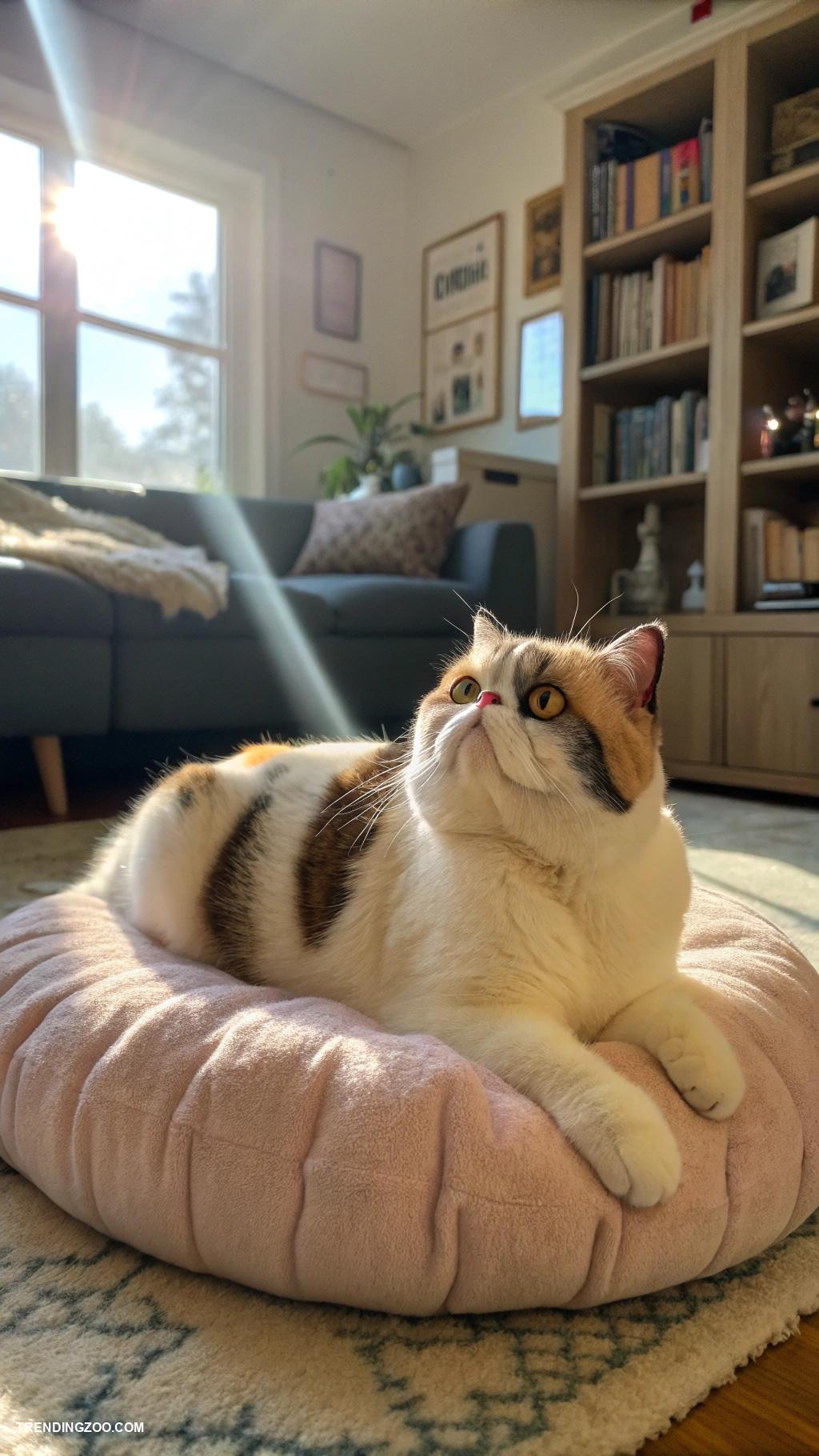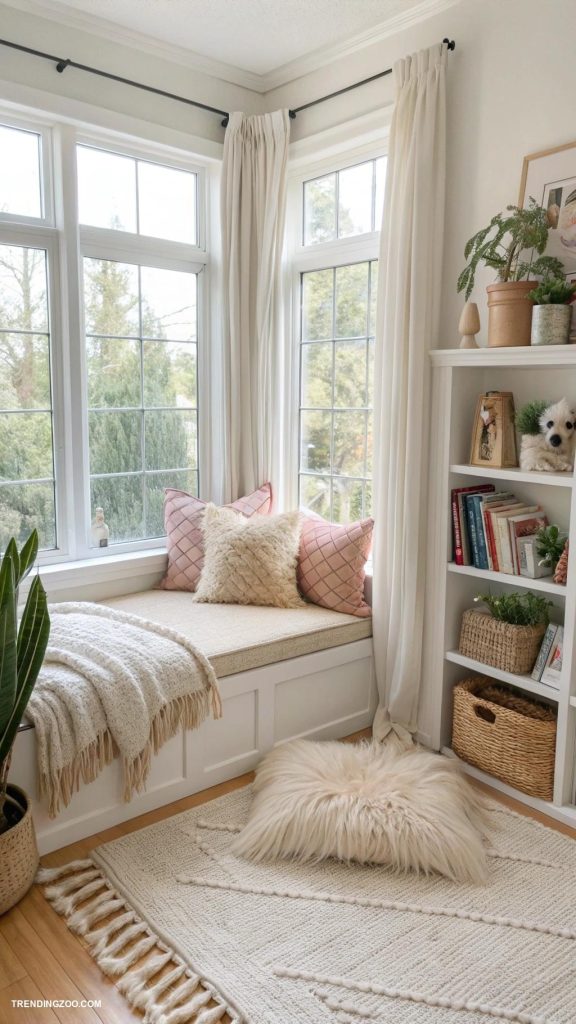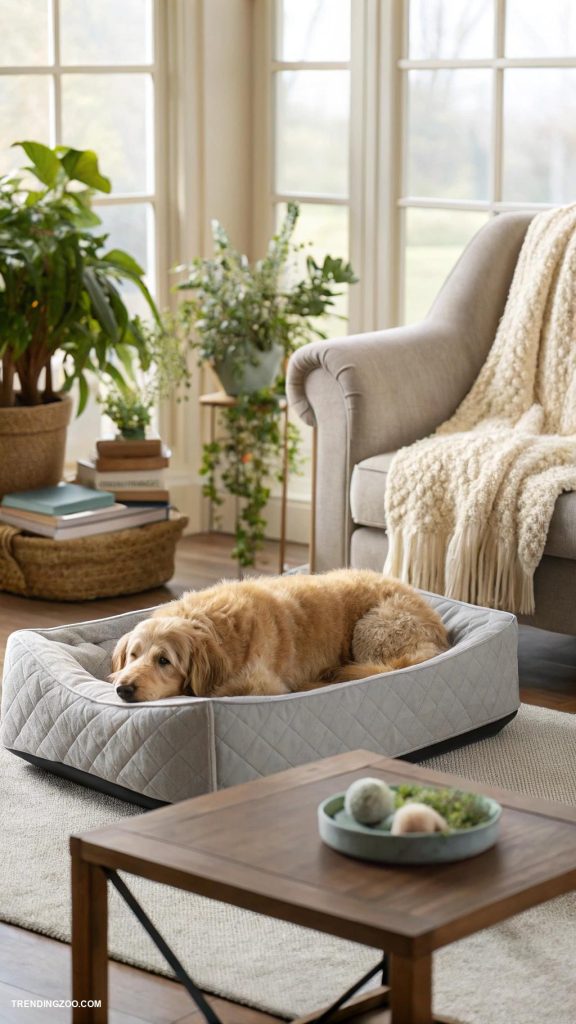The Exotic Shorthair is a breed of cat that is often overlooked in favor of its more glamorous cousins, but this feline gem is definitely worth getting to know. With its stocky build, round face, and short, easy-to-maintain coat, the Exotic Shorthair is a laid-back and affectionate breed that makes a great companion for families or individuals alike.
Originating from the United States in the 1960s, this breed was developed by crossing the American Shorthair with the British Shorthair, resulting in a unique and charming cat that is both playful and gentle. In this article, we’ll delve into the characteristics, personality, and needs of the Exotic Shorthair and explore why this breed is a great choice for anyone looking to add a new furry friend to their family.
Origin and History of the Exotic Shorthair
The Exotic Shorthair is a domesticated cat breed that originated in the 1960s in the United States. The breed was developed by crossing the American Shorthair with the Persian, with the goal of creating a cat that combined the Persian’s beautiful long coat with the American Shorthair’s sturdy build and short, easy-to-maintain coat.
The first Exotic Shorthairs were bred by a group of dedicated cat fanciers who wanted to create a cat that was both beautiful and affectionate. The breed was officially recognized by the Cat Fanciers’ Association (CFA) in 1967 and has since become a popular breed among cat enthusiasts. Despite its name, the Exotic Shorthair is not an exotic or rare breed, but rather a domesticated cat that has been bred to have a unique appearance and personality.
Over the years, the breed has undergone several changes and refinements, with breeders working to perfect the Exotic Shorthair’s appearance, temperament, and overall characteristics. Today, the Exotic Shorthair is a beloved breed among cat lovers, known for its stunning good looks, playful personality, and loving nature.
Physical Characteristics and Appearance
The exotic shorthair cat breed is a stunning feline with a unique appearance that sets it apart from other breeds. One of its most distinctive physical characteristics is its compact and sturdy body, with males typically weighing between 9-13 pounds and females weighing between 8-12 pounds.
Their short, dense coat is one of their most striking features, with a wide range of colors and patterns available, including solid, tabby, tortoiseshell, and calico. The coat is soft to the touch and has a subtle sheen, giving it a luxurious appearance. Their face is round and broad, with a short, snubbed nose and large, wide-set ears that are slightly rounded at the tips.
Their eyes are almond-shaped and range in color from gold to copper, with a warm, expressive gaze that is sure to captivate. Overall, the exotic shorthair’s appearance is a perfect blend of elegance and playfulness, making them a joy to behold.
Temperament and Personality Traits
The Temperament and Personality Traits of the Exotic Shorthair Cat Breed are truly remarkable. Known for their affectionate and playful nature, Exotic Shorthairs are often described as “laid-back” and “easy-going”. They are generally quiet and not prone to excessive meowing, making them a great choice for apartment dwellers or those who value a peaceful living environment.
Despite their calm demeanor, Exotic Shorthairs are highly curious and love to explore their surroundings, often getting into mischief and causing their owners to laugh with their antics. They are also extremely social and thrive on human interaction, often seeking out attention and affection from their family members.
One of the most striking aspects of the Exotic Shorthair’s personality is their ability to form strong bonds with their owners, often becoming “velcro cats” that follow their owners everywhere. This breed is also known for its intelligence, often figuring out how to open doors and drawers, and even learning tricks and commands.
Overall, the Exotic Shorthair’s unique blend of playfulness, affection, and intelligence makes it a beloved companion for many cat enthusiasts.
Care and Maintenance Requirements
Exotic Shorthair cats are known for their playful, affectionate, and adaptable nature, but to keep them happy and healthy, it’s essential to provide regular care and maintenance. As a responsible pet owner, you’ll need to commit to a daily routine that includes brushing their coat, trimming their nails, and cleaning their ears and eyes.
A soft-bristled brush or a grooming glove is ideal for removing loose hair and distributing skin oils, which helps to keep their coat shiny and healthy. Nail trimming should be done every few weeks, taking care not to cut the quick, and ears and eyes should be cleaned gently with a damp cloth or cotton ball. In addition to daily care, Exotic Shorthairs require regular veterinary check-ups, vaccinations, and parasite control measures to prevent diseases and ensure their overall well-being.
It’s also important to provide a balanced diet that meets their nutritional needs, including a mix of protein, fat, and essential vitamins and minerals. With proper care and attention, your Exotic Shorthair cat can live a long, happy, and healthy life.
Health Considerations for Exotic Shorthairs
As a beloved companion, Exotic Shorthairs require careful consideration of their health to ensure a long and happy life. While they are generally a hardy breed, they can be prone to certain health issues that responsible owners should be aware of. One of the most common concerns is polycystic kidney disease (PKD), a genetic disorder that affects many breeds of cats, including Exotics.
Regular check-ups with a veterinarian are essential for monitoring kidney function and detecting potential issues early. Additionally, Exotic Shorthairs are also susceptible to hypertrophic cardiomyopathy (HCM), a heart condition that can lead to heart failure if left untreated. A genetic test can help identify carriers of the condition, allowing breeders to make informed breeding decisions.
Other health considerations include patellar luxation, a condition where the kneecap slips out of place, and spinal muscular atrophy, a degenerative disorder that affects the spine and muscles. Regular veterinary care, a balanced diet, and a safe living environment can go a long way in preventing or managing these conditions, ensuring your Exotic Shorthair lives a long and healthy life.
Nutrition and Diet Recommendations
As a proud owner of an exotic shorthair cat, it’s essential to provide your feline friend with a well-balanced diet that meets their unique nutritional needs. Exotic shorthairs are known for their playful and curious nature, and a nutritious diet is crucial to support their overall health and energy levels. According to the American Association of Feed Control Officials, exotic shorthairs require a diet rich in protein, fat, and essential vitamins and minerals.
A high-quality cat food that is formulated specifically for their life stage and lifestyle is recommended. Kittens, for instance, require more protein and calories than adult cats, while seniors may benefit from a food that is easier to digest. Look for a food that contains named protein sources such as chicken, salmon, or beef, as well as whole grains like brown rice and oats.
Avoid fillers and by-products, which can be difficult for cats to digest. Additionally, provide plenty of fresh water at all times and consider adding healthy treats like cooked chicken, green beans, or pumpkin to their meals. Remember to always consult with your veterinarian before making any changes to your exotic shorthair’s diet, as they can provide personalized recommendations based on your cat’s individual needs and health status.
Finding and Choosing an Exotic Shorthair
When considering bringing an Exotic Shorthair cat into your family, the first step is finding a reputable breeder or rescue organization. Look for breeders who are members of national cat associations, such as the International Cat Association or the Cat Fanciers’ Association, and have a good reputation online.
A responsible breeder will be transparent about the cat’s ancestry, health, and temperament, and will allow you to visit their facility to meet the parents of the kittens. They should also provide health guarantees and be willing to answer any questions you may have. If you’re adopting from a rescue, be prepared to fill out an application and provide references, and be patient as the organization works to match you with a cat that fits your lifestyle.
Once you’ve found your Exotic Shorthair, be sure to spend quality time with it to ensure you’re a good match, and don’t rush the decision. A good relationship between you and your cat is crucial for a happy and healthy life together.







